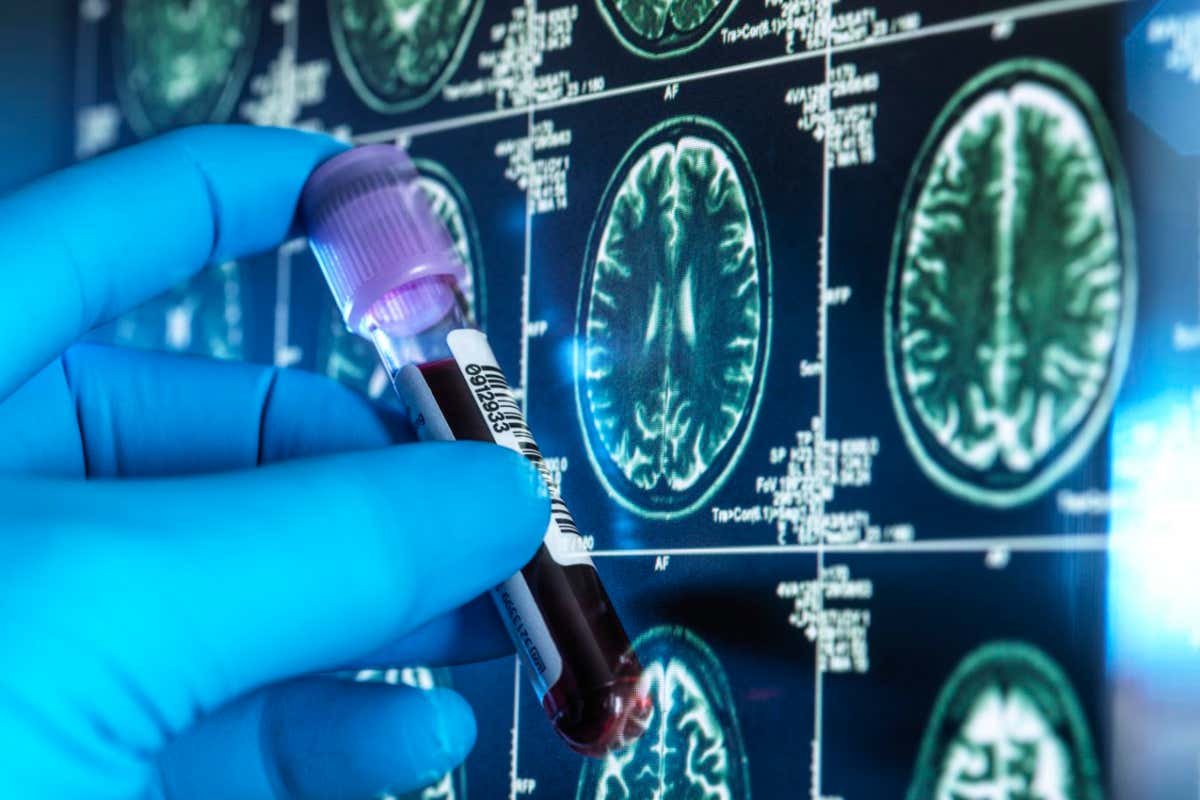
Blood tests could speed up the diagnosis of Alzheimer’s disease
TEK IMAGE/SCIENCE PHOTO LIBRARY/Getty Images
Diagnosing Alzheimer’s disease can be a difficult and lengthy process, but it could be aided by one or more blood tests in the next few years.
Several such tests for Alzheimer’s disease are used in research settings, but aren’t yet routinely used by doctors in most countries. Now, a project to see which one works best in the real world has been launched by a coalition of UK medical research funders.
Those involved predict they will have at least one test ready to be routinely used when people consult a doctor for memory problems by the project’s end, in five years.
“We expect, in the next five years, the pathway to somebody getting a diagnosis to be completely different,” Susan Kohlhaas at charity Alzheimer’s Research UK said at the project’s launch on 8 November.
The team can be so confident of the project’s success because the tests have been shown to have good accuracy when used in research, Joanne Rodda at the Kent and Medway Medical School in Canterbury, UK, said at the launch event. We know these tests have an accuracy that is comparable to spinal fluid tests, which are currently used as part of the Alzheimer’s diagnosis process, she says.
The tests used in research are usually based on various forms of two proteins involved in Alzheimer’s. One, called beta-amyloid, builds up outside brain cells. The other, tau, accumulates within the cells.
Several firms internationally offer testing for an Alzheimer’s-associated variant of each of these proteins to gauge whether someone may have the condition.
The tests need to be assessed under real-world conditions because, although Alzheimer’s can affect people of any income or ethnicity, those with the condition who take part in clinical trials are often white and also have higher income levels than most of the population. The results may also be affected by variations in diet or lifestyle, Fiona Carragher at the Alzheimer’s Society in the UK said at the event.
The project to compare some of the different available tests, known as the Blood Biomarker Challenge, is being run jointly by the Alzheimer’s Society, Alzheimer’s Research UK and the UK’s National Institute for Health and Care Research.
The impetus partly stems from the development of treatments that clear amyloid from the brain. Two drugs consisting of antibodies that bind to amyloid slightly slow the deterioration seen with Alzheimer’s, although the effect is small and there are concerns about side effects.
One, called lecanemab, is approved in the US for treating Alzheimer’s, although to be eligible, people need to have a confirmed build-up of amyloid, usually from a positron emission tomography brain scan or a sample of spinal fluid, which could be avoided if a blood test accurately looked for raised levels of one of the amyloid variants.
It would also have other advantages, even before any new treatments become available, said Rodda. People who go to a doctor because of memory problems can take months or even years to get a diagnosis, with the process usually involving different kinds of cognitive tests and sometimes multiple brain scans.
A blood test probably wouldn’t avoid the need for cognitive tests, but would be done in addition to them, said Rodda.
Rob Howard at University College London says a blood test would be a useful addition to existing diagnostic procedures, as it would help people gain faster access to some existing treatments of Alzheimer’s symptoms, such as drugs called cholinesterase inhibitors.
But he warned that such tests shouldn’t be used by individuals without a doctor’s involvement. For example, a consumer test is available to buy online in the US. “They are needed in the context of a proper clinical assessment,” says Howard.
Topics:

Felecia Phillips Ollie DD (h.c.) is the inspiring leader and founder of The Equality Network LLC (TEN). With a background in coaching, travel, and a career in news, Felecia brings a unique perspective to promoting diversity and inclusion. Holding a Bachelor’s Degree in English/Communications, she is passionate about creating a more inclusive future. From graduating from Mississippi Valley State University to leading initiatives like the Washington State Department of Ecology’s Equal Employment Opportunity Program, Felecia is dedicated to making a positive impact. Join her journey on our blog as she shares insights and leads the charge for equity through The Equality Network.




